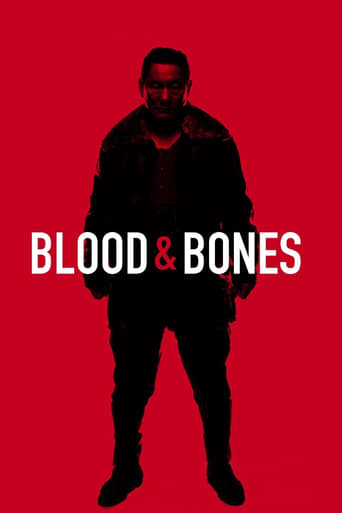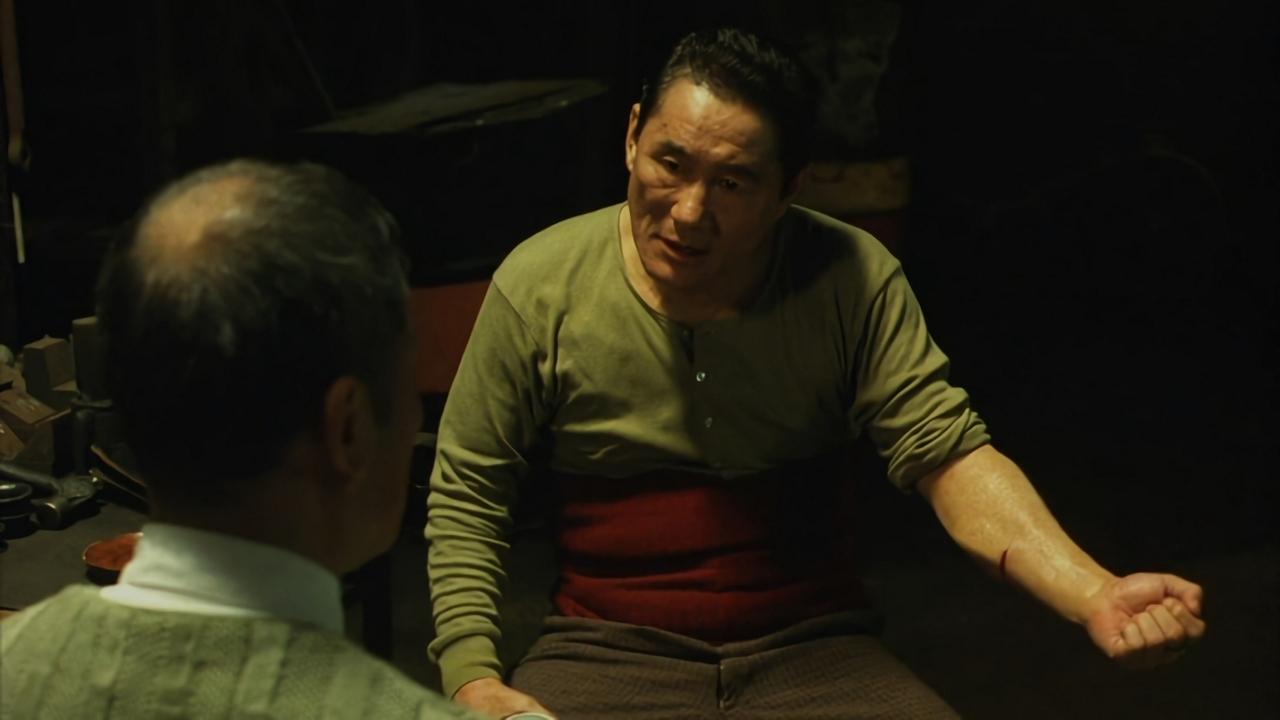Dr Jacques COULARDEAU
This film is essential to understand post war Japan and Korea and even modern Korea. The community of Korean expatriates in Japan lived through the war and then had to cross a long period of doubt and enthusiasm. The enthusiasm came with Mao Zedong and the liberation of China, but also with the promise of the liberation of Korea, even if this promise got frustrated. But the essential part of the film is dealing with the violence of everyday life on all children, and essentially the violence of a tyrannical father who does not know any other rule to govern his own feelings, if not passions, and to dominate his fellow Koreans and neighbors, but to impose his violent law, his necessary violence between him and everyone else, be they his wife, his children, his lady friends or concubines, his employees, his clients, his next door relatives or strangers. It cultivates in the children the deep desire to compensate this violence and this frustration not to speak of alienation, and the direct compensation they cultivate on their side of life is violence with this father, violence with other people, and a political commitment that promises them justice, disalienation, liberation, even poetry and art, and this is realized in the communist party, in the communist dream in North Korea with Kim Il Sung. But then the film is a challenge to logic, to reason. Are all revolutions the same lie, the same false motivation, the same fake commitment? Is any revolution nothing but a vengeance, a revenge on the brutality of life and particularly on domestic and family violence? If so how can progress come out of it? Is progress bound to fail in front of such motivations? Or is progress bound to come out of such mis-motivated people, mis-motivated action? And that's where the film is optimistic. In spite of all difficulties in this life for individuals or communities, progress comes up and out of it all. The world altogether is moving towards a better level of existence and reality. The film even seems to advocate the idea that this suffering, this violence, this alienation, this frustration are necessary for commitment to be possible and progress cannot come without that commitment. And the cause of the suffering, be it a war, or a father, or any other cause, will disappear, end and vanish one day though all those who will survive it or him will never forget him or it. That's the very dilemma of life, but also its beauty: good cannot come but from evil and without evil good cannot be born, emerge and come to life, even if some evil will also come out of it in a way or another that will produce some new improvement and progress. This film thus advocates in the end that we have to let history and life go their own way and trust humanity in its search for a better life for everyone. You may think it is slightly simple but anyone will tell you that it is always simple things that have the highest chances to happen. History hates complicated solutions.Dr Jacques COULARDEAU, University Paris Dauphine, University Paris 1 Pantheon Sorbonne & University Versailles Saint Quentin en Yvelines
wanderingstar
This is the tale of Joon-pyong Kim, who immigrates to Osaka from Korea as a teenager in the 1920's. The film flashes about 10-15 years forward and it turns he's a horrendous wife beater with a successful fish cake business. This film reminded me a little of Scarface: replace gang violence with the domestic variety and cocaine with fishcakes.As in Scarface, the main character is devoid of compassion, mean, violent and you loathe him. In this respect the film succeeds with a very good performance by Kitano.Where it fell short for me is Joon-pyong's life is kind of uninteresting. I liked the idea of a true story of a Korean immigrant trying to make it in Japanese society, through two wars and with all the racial strife.. but this theme was really a side bar to the depressing and unrelenting abuse Joon-pyong's family endures.The film does succeed in demonstrating cycles of domestic violence and how a man can be successful in business and yet have a totally failed family life. But I think this theme was firmly established 1/2 hour into the film, and the film continues in that vein, not really introducing any highs or lows or change, in the next two hours.The film has some good components but as another review said, there's nothing here to really cheer about.
boy316
Many of you complained that there is no reason behind his violence. This is because there is no personal attachment between the protagonist and mass audiences. Personal attachment is beyond cinematography, storyline, or even the acting skills. To me, i was feeling watching myself, i had tears dropping in two scenes: he washed for his wife after she had the brain surgery, he could not stand up after his leg was half paralyzed. Same sad feeling emerged when i was watching when Derek's mother Jew boyfriend questioned Derek: ' What are you doing Derek, this is your family.' (American History x) Sometimes, u need reason to justify violence outburst of behavior in films, sometimes you don't, for example, why did Leather face kill people? Why did the gangster in Gangster no 1 being so violence? Why did Tommy DE Vito shoot the poor waiter on the foot, then in the stomach three times later on? The reasons were there, but it is not necessary to explain clearly. Regular audiences need reasons for violence to feel better about rampage. It's enough for me to know that Tommy DE Vito, the gangster, Niki Santora, leather face had the ability to kill in any necessary situations according to their standard. This case is the same, he will never change, even when he was crippled, walking with a crane, he still wanted to execute violence, because it's in his blood, he has no emotional control ever when being disrespected. Renoir, the director of Grand Illusion stated that ' Evertbody has his/her reason.' Which indicated that the reason is not necessary to be explained in films, it's enough to know that every one has a reason for pattern of behavior.In the end, he managed to donate a large sum of finance to the Korean government. And it was used to build schools, hospitals, and aided million plus citizens. Although he did mentally and physically destroy his own family. But he is still a hero to me. I am not saying that what he did was right, but a perfect hero only appears in a Cinderala man. Another reason for his violence in the film is the reflection of the Korean society culture of lowing the self esteem of women back in the days. Anyway, i wish you can admire the film in another perception, it is really a rare masterpiece.
I Hate Registering
I found "Chi to hone" very boring and repetitive. No back story I could understand. No way to understand the actions of Kitano, or most of the other members of his family.I thought I was seeing a weird Asian crossing between "Once Upon a Time in America" and "Brutti sporchi e cattivi" (Ettore Scola's "Ugly Dirty and Bad"), without the powerful story those film have, and didn't enjoyed it.Cinematography is below average, acting is very good, but overall the movie makes no sense. It may be because I don't understand much of Japan/Korea history, but I generally appreciate Japanese movies (from Kitano's to Kurosawa).It is clear that a lot of time was spend in the sets and the reconstruction of the 40's, 50's and 60's in the movie, and a lot of details looks real. But all seems very pointless.There are some sexual scenes that are very hard to see, mostly because they are quite repetitive and don't make the story move.The bottom line: you probably have better to do with your time.


 AD
AD



